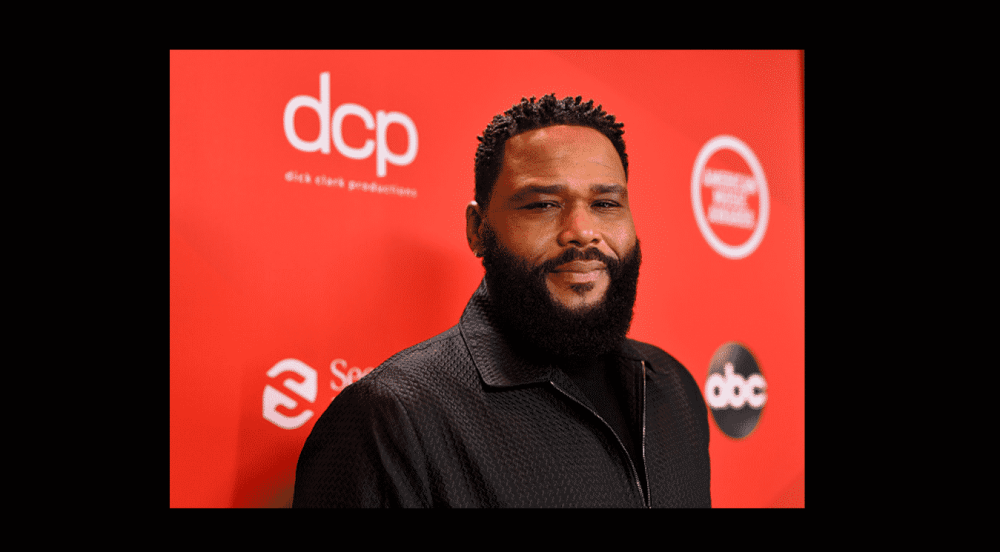On screen and behind it, Anthony Anderson has used his inviting comedic style
to both entertain and inform. On his hit ABC show Black-Ish, his crew has
tackled everything from micro-aggressions to gentrification and disparities in
education. Now, Anderson is working with Advil to sound the alarm on COVID-19
and encourage Black and Brown communities to get vaccinated through the #AfterMy Shot campaign.
Anderson got his second dose of the Moderna vaccine in March, but admits he
was “hesitant” at first. A round of golf with a friend in the medical field, in which he peppered him with questions, as well as doing his own due diligence put his mind at ease. Seeing the virus’ impact on his own family also helped change his perspective.
Anderson’s 21-year-old son, Nathan, had mild symptoms after contracting
COVID-19. His aunt also tested positive, and his uncle spent time in the hospital
for more severe symptoms. “As an African American male, 50, with a preexisting condition of type two diabetes, I felt it was in my best interest to become vaccinated,” said Anderson. The opportunity to see family again became a final motivating force for Anderson after tragedy struck. His grandmother passed away in November 2020, and
pandemic era funeral arrangements limited who could attend. “We had to have a socially distanced funeral while laying our grandmother to rest, but before we could even do that everyone had to get tested,” said Anderson. “Just going through the rigmarole of that, and the lost opportunity to be able to be in the presence of loved ones was really a big factor.”
Anxiety around vaccines often centers on the symptoms people experience, like
muscle aches and chills. Through the Advil #AfterMyShot campaign, Anderson hopes to alleviate those fears by sharing his experience and some practical tips
to have a post-shot bounce back. His biggest advice? “Pop one Advil every four hours. I didn't have a problem whatsoever. A little arm soreness, but that was minute.” Experts also recommend hydrating before and after your appointment.
Anderson is now responsibly enjoying the fully vaxxed life in one of his favorite
hangouts, Napa Valley, California, a.k.a Wine Country. He prefers red wines
because “that other stuff is just colored water.” He’s celebrating a “grown man
sexy summer” after dropping eight pounds through Will Smith’s weight loss
challenge, and planning a trip to the Maldives to cap off his vacation. “When the world really opens back up again, you ain't gonna see me unless you are in a foreign land, on a plane, or on a golf course,” he joked.
When Anderson touches back down in the states, he’s back to work filming the
final season of ‘Black-ish, a show that’s been a major part of his life for the past
eight years. “I'm going to miss going to work every day with the people that I work with, my television family,” said Anderson. “And that's not just the family in front of the
camera, but the people that you will never hear or know about who make our
show work. From the grips, to the carpenters, to hair and makeup people, to the
writers, lighting and camera men and women. Those are my people.”
This season, Black-ish has continued to shine a light on current events and issues through the lens of the Johnson family, addressing the pandemic, systemic racism and the movement for Black lives. Anderson is proud to have been a part of something that both started conversations around Black issues and added to the dialogue.
“I think the legacy of the show is that we didn't shy away from anything,” said
Anderson. “We hit the nail right on the head with everything from the election to
police brutality, sexism, postpartum depression, and colorism. Everything that has
affected us within our Black community, we've addressed it.”
Anderson said the show took shape from conversations with creator Kenya
Barris about what was missing from the television landscape. They wanted to
bring back the essence of classic sitcoms like All In The Family and The
Jeffersons while crafting something new and modern. Nearly 200 episodes later,
he feels they’ve made an impact for diverse storytelling on primetime television. “People started to take notice and see how we were moving the needle,” said
Anderson. “Then the networks were looking for their Black-ish. That became a
feather in our cap. Imitation is the best form of flattery. So with the success of our show, we were able to allow other minorities to come out and share and tell their stories.”
After Black-ish completes its run, Anderson wants to flip the script and do a one-
hour drama, potentially for a streaming service. He’s also planning a reality show
with his 67-year-old mother, Doris, who’s already been a scene stealer in T-
Mobile commercials and the celebrity game show Anderson hosts called To Tell
The Truth. “I’m trying to develop something where she and I really can show the true
dynamic of who we are. Because we're more brother-sister-friend than mother-son. And that's where our magic really lies.”













